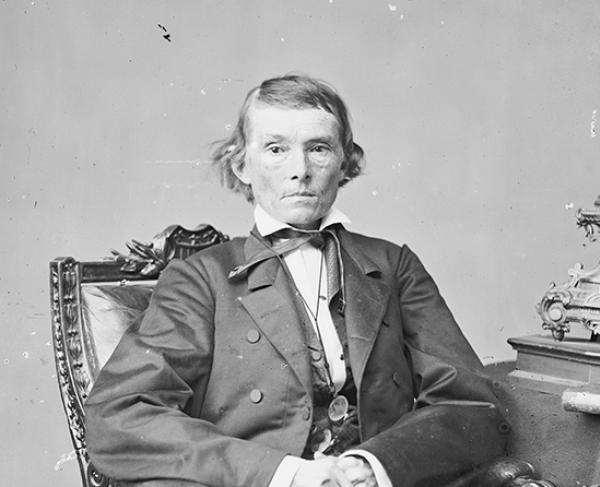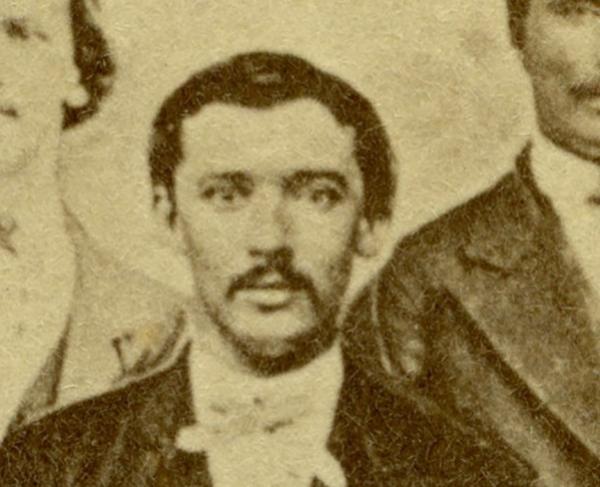Alexander Stephens

Alexander Stephens was born in Wilkes County, Georgia on February 11, 1812. When Stephens was 14 years old both his parents passed away, and he was sent to live with his uncle, General Aaron Grier. It was in the custody of General Grier that Stephens began to focus on his academic pursuits, as Grier had one of the largest private libraries in the area. Stephens went on to attend Franklin College (now the University of Georgia) where he graduated at the top of his class in 1832. Following his graduation from Franklin College, Stephens began a very successful law career in Georgia.
Stephens made his entrance into the world of politics in 1836 when he was elected to the Georgia House of Representatives, where he served a number of terms. In 1842 he was elected to Congress where he fought against both the Wilmot Proviso and the Compromise of 1850, because they would restrict the expansion of slavery.
As talks of secession grew, Alexander Stephens advocated that the Southern states should remain loyal to the Union, and that a solution could come through Congress and not through secession. He was elected to serve as a delegate to Georgia’s special convention on secession, where he voted “no” but supported the state's right to secede if the northern states continued to nullify the Fugitive Slave Act.
In November 1861 he was appointed to serve as the Vice President of the newly formed Confederate States of America. Earlier in that year he delivered his famous “Cornerstone Speech” in which he declared that "our new Government is founded upon exactly the opposite ideas; its foundations are laid, its cornerstone rests, upon the great truth that the negro is not equal to the white man; that slavery, subordination to the superior race, is his natural and normal condition."
Stephens and Confederate President Jefferson Davis often disagreed throughout their terms as President and Vice President. Stephens publicly disagreed with Davis’s use of conscription in the Confederate Army and his suspension of the writ of habeas corpus, both of which Davis felt violated states’ rights. He even publicly supported Georgia Governor Joseph Brown in his public feud with President Davis.
As the Confederacy’s losses began to pile up, Stephens became a leading figure in the push to find peaceful resolution to the conflict. In 1864, Stephens gave a speech to the Georgia legislature in which he attacked President Davis for his use of conscription, and proposed a number of resolutions with the purpose of bringing the Civil War to a peaceful conclusion. His attempts at a peaceful conclusion continued, and on February 3, 1865, he and two other Confederate commissioners met with President Lincoln aboard the River Queen in a failed attempt to bring the war to a peaceful end.
Following the war Stephens served as both a Senator and House Representative before beginning a term as the governor of Georgia. His stint as governor only lasted 4 months however, as he passed away 4 months into his term on March 4, 1883.

